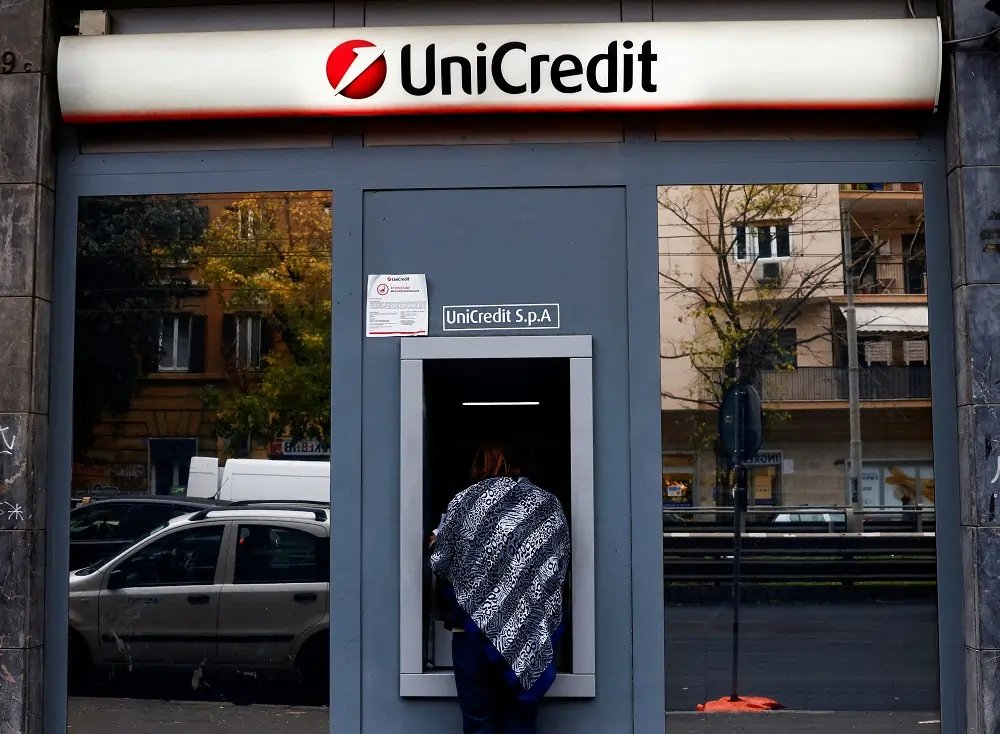Italy demands full disclosure from UniCredit over BPM bid, sources say
Published by Jessica Weisman-Pitts
Posted on December 23, 2024
3 min readLast updated: January 27, 2026

Published by Jessica Weisman-Pitts
Posted on December 23, 2024
3 min readLast updated: January 27, 2026

By Giuseppe Fonte and Valentina Za
ROME (Reuters) – Italy wants UniCredit to disclose full terms of its proposed takeover of smaller rival Banco BPM under “golden power” rules EU governments can use to screen investments in strategic sectors, sources said.
Asking not to be named, two people familiar with the matter said the government had rejected UniCredit’s request for a preliminary assessment, known as pre-notification, of the Banco deal.
The move suggests UniCredit faces a long wait for the approval of its 10-billion-euro ($10.41 billion) all-share unsolicited offer. This could help BPM strengthen its defence against the bid, a third person said.
A lengthy review would potentially complicate plans of UniCredit CEO Andrea Orcel who has also built a stake in Commerzbank and has said the timelines of the two potential takeovers will not overlap.
UniCredit did not immediately respond to a request for comment.
The bank’s bid for BPM has irked Rome as it could scupper its plan to broker a merger between BPM and state-backed Monte dei Paschi di Siena to create a competitor to heavyweights UniCredit and Intesa Sanpaolo.
Companies tend to use a pre-notification to check whether a proposed takeover falls under the golden power legislation, so they can streamline and accelerate procedures for deals the government does not see as strategic.
The golden power rules, designed at the European Union level to fend off unwanted non-EU buyers, were expanded during the COVID-19 pandemic to shield key companies when valuations crashed. Some countries including Italy have applied the legislation to the banking sector.
Under the full disclosure demanded, Prime Minister Giorgia Meloni’s office will be able to request contracts and examine all aspects of the potential UniCredit-BPM deal.
Golden power rules vary across European Union countries. In Germany, for example, the government screens non-German buyers only for very specific defence assets, such as arms and military equipment firms or encryption technology ones.
A German government source told Reuters Berlin would not subject UniCredit’s investment in Commerzbank to any screening.
In Italy, the government reserves the right to scrutinise any decision or transaction which results in changes in the ownership, control or availability of strategic assets in energy, health, finance and numerous other sectors.
Yet Rome still has limited scope to intervene in UniCredit’s swoop for BPM, as EU treaties promote free movement of capital in the bloc.
BPM last week asked market watchdog Consob to adopt measures to protect the bank’s stakeholders, complaining that UniCredit’s bid, with just a 0.5% premium, may be simply a way to jeopardise a BPM buyout proposal for fund manager Anima.
($1 = 0.9603 euros)
(Editing by Gavin Jones and Tomasz Janowski)
A takeover occurs when one company acquires control over another company, often through purchasing a majority of its shares.
An unsolicited offer is a proposal made by a buyer to purchase a company without the company's prior agreement or invitation.
Banco BPM is an Italian bank formed from the merger of Banco Popolare and Banca Popolare di Milano, focusing on retail and corporate banking.
Regulatory compliance refers to the adherence to laws, regulations, guidelines, and specifications relevant to a business's operations.
Explore more articles in the Banking category











